Powerful populist wave is unleashing new fractures
As Donald Trump, Nigel Farage and Marine Le Pen surge in popularity, the scourge of division politics is threatening Australia as well.
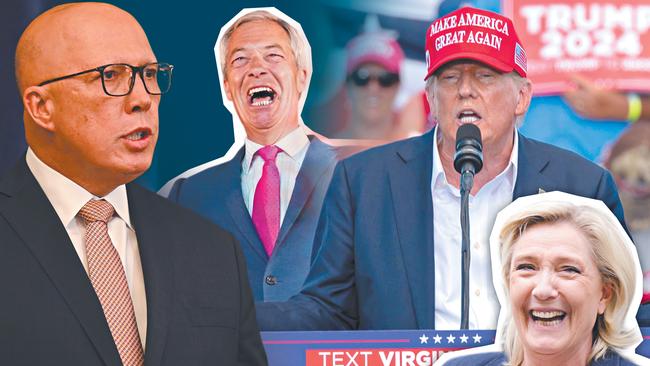
Populism is regularly beaten back but only surges stronger than ever, betraying the broken politics of the West. Now it beats at the doors of America, France and Britain in different ways.
There are three big trends on display: governments are failing, witness the Biden administration, the hapless Tory party in the UK and the once-lauded French President, Emmanuel Macron; democratic electorates are fracturing along economic, social and religious divides; and extremes of the right and left are feeding off each other’s enmity as the political centre is weakened.
Populism thrives on grievance but is devoid of genuine solutions. It always needs a leader who is charismatic, or a celebrity or a rabble-rouser. Take your pick from Donald Trump, Marine Le Pen and Nigel Farage.
The prime populist exhibit is Trump, now undisputed presidential frontrunner, campaigning on a farrago of lies, revenge and reckless proposals. Macron, once hailed as the terminator of populism, has been humiliated by Le Pen’s populist right National Rally, now striving for a place in government, with Le Pen hoping to become a future president. And this week’s UK election, while delivering a Labour government, has plunged the defeated Conservative Party into a crisis of meaning and identity with right-wing UK Reform leader Nigel Farage fracturing and stealing a big slice of the Tory vote.
Now elected to parliament, claiming six million party votes and having outpolled the Tories in many seats, Farage said: “My plan is to build a mass national movement over the course of the next few years.” His target is the 2029 election. His platform this campaign was to freeze non-essential immigration, deny settlement to illegal immigrants, scrap net-zero targets, penalise big business, tax breaks for small business, attack “woke” ideology, and outspend the other parties on health.
Populism is going mainstream, driven by declining faith in the current party systems. In the Netherlands, the Freedom Party of Geert Wilders – defined by its opposition to Islam – prevailed in the most recent election. In Italy, its first female PM, Georgia Meloni, is one of the most significant populist leaders, heading a party with neo-fascist roots, but also a pragmatist and likely to become an influential broker if Trump enters the White House.
Australia won’t be immune. Anyone fool enough to think this should be disabused by the events of the week. The issue in Australia is what form populism takes in its economic and social dimensions. A Trump victory will send our conservative populists into a frenzy of activity. At the same time, the defection of Muslim senator Fatima Payman from Labor, her calculated tactics of maximising the damage and her role as a symbol of Muslim political power is a transforming event for the country with one guarantee – it will create new divisions in this country’s political system provoking a strong backlash from the right.
This won’t be confined to Pauline Hanson. Much of the country sees the pro-Palestinian demonstrations as an attack on the Australian way of life. Payman has broken the unwritten rules of multiculturalism.
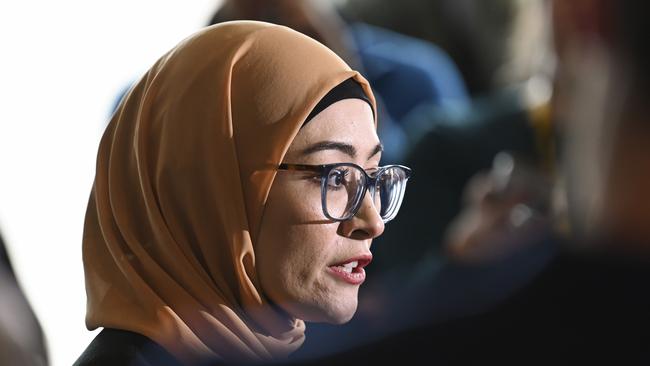
Parties defined by religion are a serious threat to the country. Just as the Muslim issue has driven politics in Britain and France – and in the Democratic Party in the US – the announcement of a Muslim vote campaign targeting Labor MPs at the next election will trigger reverberations going to the heart of Australian values of unity and tolerance.
Sooner or later this will lead to an inevitable debate about Muslim immigration to Australia, a debate both understandable but dangerous in its populist dimensions. What will be critical is how the Peter Dutton-led Coalition handles this issue as well as how Albanese Labor defends its seats.
The essence of Western populism is a civilisation ethic; the populists want economic justice, immigration restraint and cultural unity. Their mostly extreme calls are empowered by the abject failure of liberal and conservative governments of both the left and the right. The central story of the 21st century so far is the inability of executive governments to manage the challenges of sustainable economic growth, equity, climate, immigration, multicultural cohesion and national security threats.
Nowhere is this more important than in America. While anything Trump says demands scepticism, it is a mistake to dismiss what he says.
Trump will transform US economic and climate policy with vast consequences both for the US and the world. The Trumpian wave will roll over our politics from early 2025 if he succeeds.
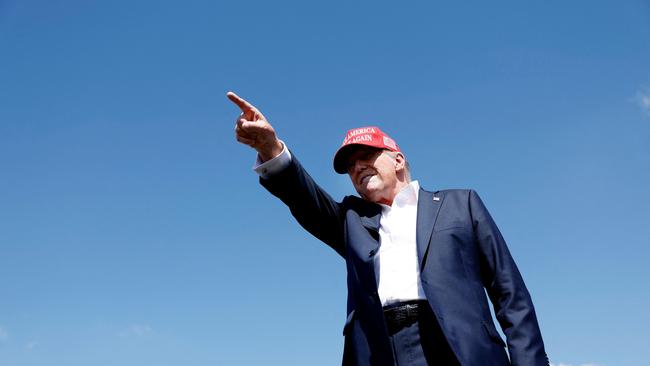
The impact defies prediction. But history shows Trump is a threat to conservative politics. As the Coalition redefines its stance after the 2022 election loss, Dutton’s task will be to mobilise disillusionment with the Albanese government but contain populist madness. This need for such balance is already on display given the Coalition’s pledge to slash immigration, build seven nuclear power plants, and signal a divestment threat in relation to supermarket and hardware giants, with housing, tax and gas policies to come.
Labor’s attack lines are already drawn – that the Coalition has surrendered to impractical extremism and populist preening with policies that defy credibility. That’s understandable but it’s also a danger for Labor since Dutton is tapping popular sentiments.
If Trump is half serious, Australia will feel his impact. Trump’s policies involve a massive increase in tariffs (10 per cent on all imports from all countries and 60 per cent on China’s imports), using the revenue to cut, or even, improbably, eliminate income tax, undermine central bank independence in the cause of lower interest rates and sell out Ukraine to Russian President Vladimir Putin.
It is hard to comprehend such disastrous notions. A competent rival would tear him to pieces – but Joe Biden is barely coherent and should have declined to recontest.
The consequences of Trump would be intensified protectionism on top of Biden’s selective tariff increases, a lurch towards a global trade war, a deeper US-China decoupling, punitive high inflation, higher US debt, damage to most US households and a gift to the aggressive ambitions of anti-democratic autocrats.
A host of economists have warned about Trump, with former Treasury secretary Larry Summers, a critic of Biden’s inflationary policies, saying: “There has never been a presidential platform so self-evidently inflationary as the one put forward by President Trump.”
Having assessed Trump’s proposals, the US Peterson Institute for International Economics said: “Why 10 per cent? Why all countries? There is no other reasonable explanation than that Trump considers all trade to be ‘unfair’. The indiscriminate imposition of tariffs would no longer be confined to a trade war with China, if that is where the United States is headed, but a war against trade itself. What is at stake is the health of the US economy and that of the rest of the world.”
How far would Trump go? No one knows, perhaps Trump doesn’t know. Such proposals may be negotiating ploys since he sees most things as transactional, including alliances. Trump is probably more of a deal-maker than an ideologue. Whether the Albanese government could manage him as effectively as Malcolm Turnbull and Scott Morrison did over 2016-20 is dubious.
The populist philosopher of the Trump bandwagon, Steve Bannon, who entered prison last week for four months, was interviewed beforehand by David Brooks, a New York Times columnist, who asked, “What’s the core narrative?” and said what Bannon told him “now seems doubly terrifying”.
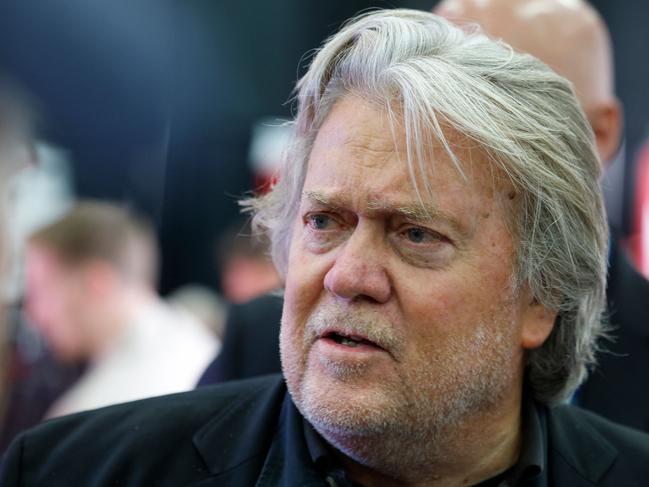
“The elites have lost faith in their countries,” Bannon said. “They’ve lost faith in the Westphalian system, the nation-state. They are more and more detached from the lived experience of their people. I’m not in the media. This is a military headquarters for a populist revolt. We call it the Army of the Awakened. I mean, Murdoch is a bigger enemy of ours than MSNBC. Because he’s the epitome of neoliberal neocon. They’re never going to want fundamental change.
“Our movement is metastasising to something that’s different than America First; it’s American Citizens First. Immigration is just the manifestation of a loss of self-confidence.
“And it’s shocking. Right now, the American citizen has all the obligations of serving in the military, of paying taxes, of going through this grind that is American last-stage technofeudal capitalism. But tell me what the bonus is.
“Well, they have the power. But we’re going to win. We’re ascendant in Europe. We’re ascendant here. We’re not organised. But our enemies – and they are enemies – continue to overplay their hand, and so we continue to rise.
The historical left is in full meltdown. They don’t understand that the MAGA (Make America Great Again) movement, as it gets momentum and builds, is moving much farther to the right than President Trump. They will look back fondly at Donald Trump. They’ll ask: Where’s Trump when we need him?”
Bannon said Trump was a “peacemaker” while “75 per cent of our movement would want an immediate total shutdown – not one more penny for Ukraine”. On the southern border – “I don’t think President Trump’s close to where we are”. On artificial intelligence – “we’re virulently anti-AI”. On China – “I think he admires Xi Jinping. But we’re super-hawks. We want to see an elimination of the Chinese Communist Party”. On the priorities of the second Trump Administration – “to immediately focus on immigration, the forever wars and on the fiscal and the financial, and simultaneously, the deconstruction of the administrative state.”
Populism bends boundaries and breaks norms – that is its appeal and its doom. Its banner-carriers thrive on the outrageous and often make it plausible. It is fuelled by the arrogance of elites. In 2021, Biden pledged to unite America but then governed from the left and divided the country. Below-the-radar forces are driving Trump’s momentum – the lust for the strong leader who acts but never justifies, the resentment of young men who feel the system is turning against them and deep hostility to identity politics.
The shadow of the Gaza war, pro-Palestinian political demonstrations and Muslim political assertion helps to drive the populist backlash. The far-right National Rally (RN) candidate aspiring to be France’s prime minister, 28 year-old Jordan Bardella, told the Financial Times that he wants to fight a “cultural battle” against Islamism, seize back control of immigration, establish a “national preference” for citizens over foreigners, push new laws “to combat Islamist ideologies” including steps to close down mosques, deport imams deemed to be radicalised and ban clothing ostentatious in Islamic ideology.
While the second round of the French election is unlikely to deliver a majority to any party, the country has been shocked by the first round results – the far-right National Rally won 33 per cent of the popular vote, the left-wing New Popular Front had 28 per cent and Macron’s centrist party was third on 21 per cent. The upshot has been an effort by Macron and the left to halt RN in the second round.
The fear is that Macron’s long-run strategy of building a stronger economically rational centrist party in France is now broken, with the extremes of both the right and left surging, exploiting in their different ways economic hardship and the Muslim question.
Meanwhile, the British election constitutes a turning point in three ways. First, Labour under Sir Kier Starmer has won a landslide victory – but the change of government is unlikely to have significant consequences for Australia, given Albanese and Starmer will have a collaborative relationship.
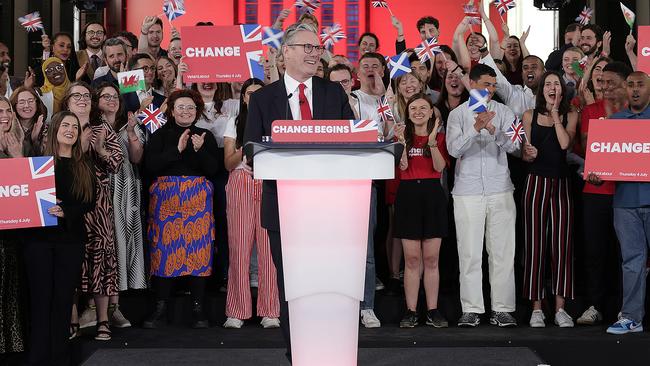
Second, the voting surge of Farage’s Reform UK has given its leader a fresh momentum.
“There is a massive gap on the centre-right of British politics,” Farage said. “And my job is to fill it, and that’s exactly what I’m going to do.”
While Reform UK has only a small number of seats (given first-past-the-post voting), it polled strongly enough to present future challenges to the Tories and Labour. Ben Habib, Reform’s deputy leader, was quick to say the result was “politically seismic” and that “this is the beginning of the fightback for the nation state of the United Kingdom”. The consistent theme in the rise of populist parties is the denial by liberal and conservative governments of the legitimate complaints of ordinary people.
Reform UK, like Trump, has focused its campaign on illegal immigrant arrivals. Final judgment awaits the full count. But the result will empower Farage in the debate about the future of conservative politics – that’s about where the Tories now go and whether they failed because they refused to stand on right-wing principles, were too progressive and alienated their own followers.
This standard critique was articulated by former conservative minister Suella Braverman, sacked last year by Rishi Sunak, who said before the election the Tory vote collapsed because “we failed to cut immigration or tax, or deal with the net zero and woke policies we have presided over for 14 years”.
Accusing the Conservatives of “insincere posturing”, she said: “The Reform phenomenon was predictable, avoidable and is entirely our fault. Millions of traditional Tory voters are not wrong. In house after house, lifelong Conservatives are furious with our party. At worse, they feel betrayed and politically homeless. At best, they are torn about how to vote.”
Welcome to the coming years of angst, gloom and damaging introspection that will engulf the once great British Conservative Party. It will be torn between the right-wing populist lurch and the need to stay centrist to expose the Starmer government’s inevitable drift to the left. The fracture on the right will solidify and strengthen the new Starmer government and has the potential to deny the Tories office for many years.
The third factor has been the rise of the Muslim Vote Campaign (TMV) focused on seats where Muslims make up more than 10 per cent of constituents. The purpose was to punish Labour – to show there is a collective and potentially powerful Muslim vote in Britain that can be channelled and peel support away from Labour, that party that traditionally has enjoyed the support of Muslims.
While Keir Starmer comfortably won the election, he lost Muslim votes to a collection of independent and third party candidates. The full extent is yet to be assessed. But the same tactic is likely to be duplicated on a smaller scale by Australian Muslims at the coming general election in this country. As usual, it is numbers that matter. There are nearly four million Muslims in Britain comprising 6.5 per cent of the UK population, numbers that are increasing rapidly.
That’s not enough to win many seats but it’s large enough to make a difference and drive a Labour government into more pro-Palestinian policies. The Muslim platform in Britain has already been foreshadowed in Australia – demands for a ceasefire in Gaza, recognition of a Palestinian state and sanctions on the Israeli government.
Australia faces a series of divisive, populist and religious political challenges between now and the next election.



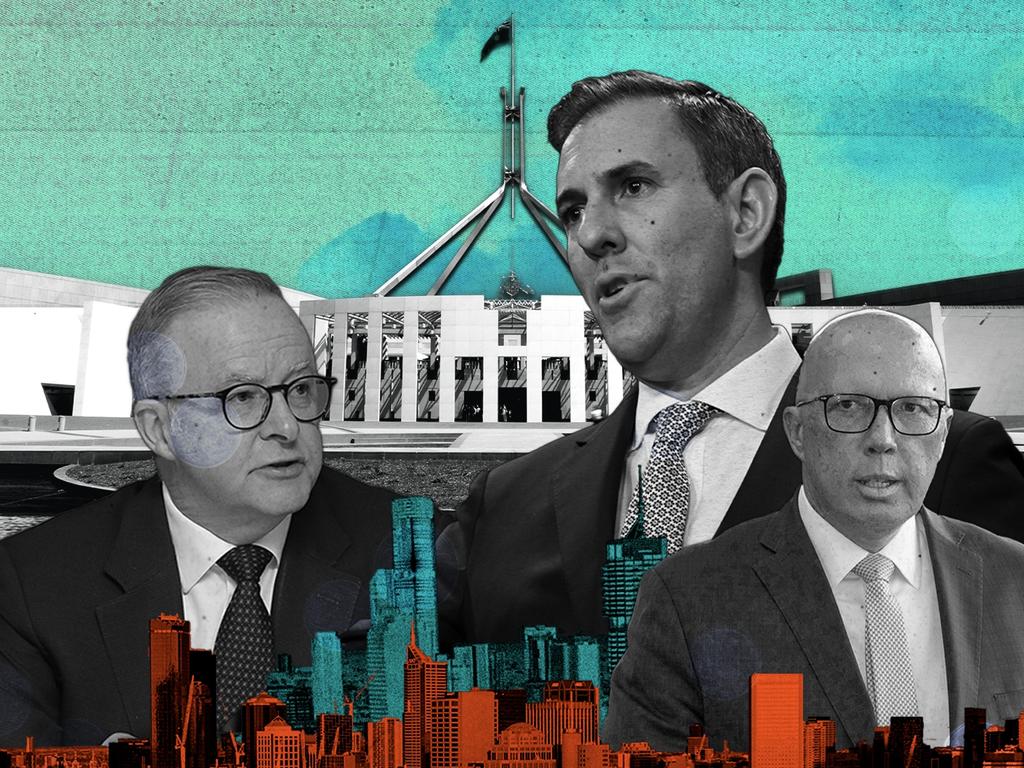

The age of sweeping populism based on economic grievance and cultural cohesion has arrived.